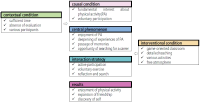PURPOSE Players’ nonverbal behavior during a game may be expressed through selfregulatory and intentional processes, where nonverbal cues are strategically used to achieve specific outcomes. This study aimed to observe and explore the strategic and intentional nonverbal behaviors utilized by table tennis players. METHODS The study utilized a grounded theory methodology and involved purposeful sampling of ten adult table tennis players. Semi-structured face-to-face interviews were conducted. The collected data were analyzed using open, axial, and selective coding techniques. RESULTS The findings revealed that players’ intentional nonverbal behaviors are influenced by their confidence levels, physical condition, and perceptions of others’ nonverbal cues. Throughout this process, players underwent various emotional experiences, worked to maintain a positive mental state, and experienced changes in both their behaviors and psychological states, which impacted the flow of the game. CONCLUSIONS This study’s results provide valuable insights into the role of intentional nonverbal behaviors utilized by athletes during competitions. This suggests that understanding and incorporating intentional nonverbal behavior should be a key consideration in sports psychology counseling and psychological skills training.
PURPOSE The purpose of this study is to section the stages of performance development based on the track and field athletes' performance records, derive the performance development span, which was a continuum of the development stages, and extract the psychological experience of the performance development span. METHODS In this study, 56 retired track and field athletes were provided with competition records, and 10 athletes participated in in-depth interviews. With the stage of performance development partitioned using long and short-term moving averages and regression slope in PRR, a continuous of performance development span was derived. To extract psychological experiences in the performance development span, a subject analysis was conducted after an in-depth interview. RESULTS First, the track and field athletes' performance development stage calculated short and long-term moving averages in the PRR. Based on the average difference in the regression slope of the initial 20% CPR in which the long-term moving average was not calculated, it was divided into beginning, rising, peak, and decline periods. Second, the performance development span was a continuum of the stage was of performance development, and the beginning period was 0 < PRR ≤ 7, it was a time when the competition record rises sharply. The rising period was 7 < PRR ≤ 60, which was a virtuous cycle time of growth athlete. The peak period was 60 < PRR ≤ 74, which was a time when the peak record was maintained. The decline period was 74 < PRR ≤ 100, which was a time when the competition record was downward. Third, throughout the performance development span physical intelligence of track and field athletes was based on their natural physical superiority, the technical skills rises and remains at its peak and then enters a downward trend. Competitional Intelligence aims to become personalization as it matures gradually while its competition management capability and game knowledge are immature. Psychological intelligence overcomes the initial psychological atrophy to form confidence, and after experiencing psychological burden at the peak, confidence decreases. In the environmental context, the competition record rises in the early stages, continues to rise, peaks, and enters a downward trend. CONCLUSIONS Track and field athletes' performance development span was implemented as a continuum of beginning, rising, peak, and decline periods, and the psychological experience of the performance development span formed a span of physical intelligence, competitional intelligence, psychological intelligence, and environmental context.
PURPOSE This study aimed to identify the nature of human rights violations experienced by semi-professional athletes in semi-professional sports teams and explored the relevant cases. METHODS For this purpose, 35 semi-professional athletes (20 men and 15 women) from the semi-professional sports teams participated in the study, and data collection was conducted through in-depth interviews and focus group interviews (FGI). The collected data were analyzed using the phenomenological research method proposed by Colaizzi (1978). RESULTS The study summarized the results into five categories, 14 theme clusters and 41 themes. Its inherent structures include ‘first step to becoming a semi-professional athlete: disadvantageous contracts for players,’ ‘unavoidable absolute power: obedience to the coach,’ ‘forced training camp: autonomy and privacy infringement,’ ‘structural problems of the semi-professional sports federation: tyrannized power’ and ‘female players who are in male-oriented society: gender-focused than performance.’ CONCLUSIONS The results of this study provided an understanding of athletes’ human rights violations experienced in semi-professional sports teams. Understanding athletes in semi-professional sports teams through phenomenological research was conducted based on previous studies discussing practical and policy intervention measures.
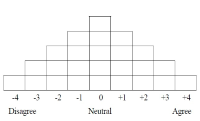
Purpose The purpose of this study is to conduct a typological classification of female recreational sport participants' coaching experience. Methods Q methodology was conducted using 25 Q-samples and 25 P-samples. Data were analyzed using PQmethod software. Results Four types were categorized: communication and character-oriented (I), function and immersion-oriented (II), process and fun-oriented (III), and function and inclusion-oriented (IV). These types were re-categorized as 'non-functional value-oriented (I, III)' and 'functional value-oriented (II, IV)'. Conclusion This study also made efforts to explore the value and norm that female participants expect from sport participation, which provided a variety of perspectives on social, psychological and philosophical discussions about woman sport. In addition, each type and its characteristics can be used as meaningful basic data in teaching method (coaching theory) for woman sport.

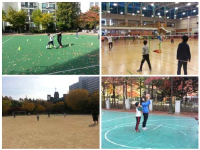
Purpose The purposes of this study were to examine the influence of a formal sports mentoring program on mentors(pre-service PE teachers), and to identify main factors affecting educational growth of the pre-service teachers. Methods Data were generated in this study using: In-depth interviews, mentoring observations, and document resources from 4 mentors and their mentees as research participants. The collected data were inductively analyzed as an iterative process of working back and forth between the data and the categories(Miles & Huberman, 1994). Results The key findings of this study are as follows. First, mentors developed pre-service teachers’ practical knowledge including teaching knowledge, environment knowledge, student knowledge within teaching contexts. Furthermore, they practiced mentee-centered education through sports mentoring not only by mentees but also for mentees. Second, with respect to the factors impacting mentors’ educational growth, there were two main factors; the systematic structure of a program and mentors’ reflexivity. Mentors improved practical knowledge through the circular ‘experiential learning’ phases the sports mentoring program provided. In addition, mentor had valuable opportunities to learn how to care mentees by reflecting on positive and negative influences deriving from interactions with their mentees. Conclusion Potential benefits were embedded in inherent nature of sport and the unique structure of mentoring. sports mentoring can provide experience of learner-friendly teaching distinct from classes of lecture type. It is necessary to be reconsidered as pre-service PE teacher education program with opportunities of other teaching practice.

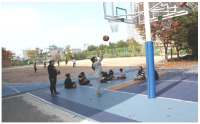


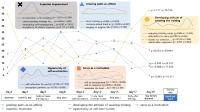
Purpose The current study aimed to identify national youth cyclist`s experience and change tendency of experience during camp training. Methods A total of 35 cyclists who participated in 2017 Korea youth national cycling camp training provided the data. The survey was conducted 9 times during the 20 days of camp training using open-ended questionnaire by diary method. The collected data were analyzed based on inductive categorization and response rates. This study was conducted in the order of formation rapport, data collection, and data analysis. Results Youth cyclists experiences during camp training to growing pains as an athlete, developing the attitude of savoring training, serve as a motivation, expertise formation and opportunity of self-examination. Based on the change in response frequency of the survey data, camp training experience falls into two categories: variable and invariable. Conclusions Youth national cyclist were growing their growth power through various experiences during the training camp, and these experiences changed to specific inflection points from the beginning to the end of the camp. Understanding changes in psychological experience can provide the design of timely psychological support and coaching method. This study will be used as a material for the design of the camp training program for the youth cyclist, as well as an opportunity to increase the interest of continuity reflection on the psychological experience.

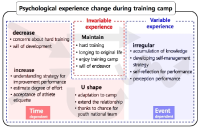
Purpose The purpose of this narrative inquiry was to explore the educational meaning of managing a specialist physical education school (SPES) and to suggest policy supports. Methods Semi-structured interviews with a physical education teacher who had managed a SPES and document analysis were undertaken. Data collected were analysed using constructivist grounded theory. Results In telling, four themes were described, which include: backgrounds that the teacher took over the SPES, cases of reforming the SPES and its impacts, pressures from a private physical education alliance, and the SPES has a long road ahead. In re-telling, a need of re-conceptualizing public education based physical education career education and four policy supports were discussed. Conclusions Developing a range of models for SPES-community connection, exploring longitudinal effectiveness of managing SPES as physical education career education, and exploring effective SPES models for student-athletes are suggested as future research.
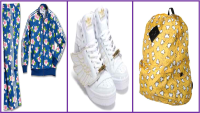
[Purpose] The present research aims to provide fundamental material required for establishing effective marketing strategies by analyzing purchasing experience of sports and art collaboration products and the determinants of purchasing intention. [Methods] Total of 370 survey questionnaires were distributed to undergraduate and graduate students in Seoul and Gyeonggi area and 331 questionnaires were analyzed as the final valid samples. For the data analysis, SPSS 18.0 version was used for frequency analysis, descriptive statistics analysis, exploratory factor analysis, reliability analysis, cross analysis, and logistics regression analysis. [Results] The study results are as follows. First, as a result of cross analysis on general characteristics, there was significant difference in age, monthly income and allowance, number of average purchases, considerations and major. Second, as a result of cross analysis on purchasing intention, there was significant difference in gender, monthly income and allowance, number of average purchases, considerations and major. Third, as a result of analyzing determinants of purchasing intention, there was significant difference in monthly income and allowance, number of average purchases, and sincerity. Fourth, as a result of analyzing determinants of purchasing intention, there was significant difference in gender, number of average purchases, considerations, major, creativity, aesthetics, interest and tenacity.

This study conducted to explore K-League (Korea Professional Football League) referees’ psychological experience and coping strategies just after the moment of wrong judgment. Open-ended questionnaire were conducted on 35 full-time referees who participated in the K-League winter training camp. The data were categorized by inductive content analysis. The results were as follows. Psychological experience yielded 45 raw data points, which were based on the following 10 sub categories; increased anxiety, rumination wrong judgment, concern about reprimand, and feeling apologetic; and four general categories including, psychological fragmentation, feeling helpless, concern about reputation, and acknowledgment of wrong judgment. Thus, K-league referees experience a psychological turbulence just after the moment of the bad calls and worsen feelings of helplessness about the wrong decisions. Also, K-league referees worry about further disadvantages following the misjudgement and admit their bad calls feeling sorry for teams and athletes who were in the incidents. Coping strategies yielded 55 raw data points from which the following categories were identified 11 sub categories; increasing concentration, attempting to forget wrong judgment, apologizing on wrong judgment, and change in thinking; and four general categories including, emotional self-support, avoiding situation, correcting the error and thinking, and changing of refereeing approach. Therefore, K-league referees enhance their concentration in order to not reoccur wrong judgement after the moment of the mistakes and try to forget the incidents of wrong judgement. Also, K-league referees apology to the teams and athletes who experienced the bad calls and make efforts to correct the mistakes if possible. Moreover, K-league referees try to modify a criteria of judgement in order to manage aftereffects of wrong judgement and make decisions correctly by approaching the scenes of the wrong judgement. The study emphasizes the importance of referee psychological stability on the field and the need for psychological support. The study is expected to encourage further research on sports referees in Korea to ensure they receive appropriate psychological support.
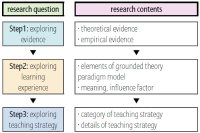
Purpose The purpose of this study was to understand learning experiences deeply and to prepare practical teaching strategies by reflecting the voices of the field. Methods For this, I used the logic and techniques of 'the grounded theory'. In particular, I used ‘the grounded theory paradigm model', which enables a holistic and systematic analysis of specific experiences to explore learning experiences and teaching strategies. I selected 10 male and female students who participated in art and physical activities as research participants. I collected data through literature review, in-depth interviews, and expert meetings, and analyzed using open coding, axial coding, and selective coding. Results First, I explored “the learning experience of art and physical activities in free-semester system", according to the elements of grounded theory paradigm model. It is composed of the ’causal condition’, ‘contextual condition’, ‘central phenomenon’, ‘interventional condition’, ‘interaction strategy’, and ‘results’. Second, based on this, I conducted "the teaching strategies for art and physical activities in free-semester system". These are composed of 'expansion strategy', 'diversity strategy', 'spontaneity strategy', and 'immersion strategy'. Conclusions The results of this study suggest that art and physical activities in free-semester system are leading to a positive change extended from the planned goals. In addition, various variables are structurally intertwined, and thus, it is considered that more strategic and systematic efforts are required in various dimensions for the successful application.

